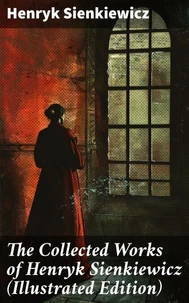Myths and Folk-tales of the Russians, Western Slavs, and Magyars
Par :Formats :
Disponible dans votre compte client Decitre ou Furet du Nord dès validation de votre commande. Le format ePub est :
- Compatible avec une lecture sur My Vivlio (smartphone, tablette, ordinateur)
- Compatible avec une lecture sur liseuses Vivlio
- Pour les liseuses autres que Vivlio, vous devez utiliser le logiciel Adobe Digital Edition. Non compatible avec la lecture sur les liseuses Kindle, Remarkable et Sony
 , qui est-ce ?
, qui est-ce ?Notre partenaire de plateforme de lecture numérique où vous retrouverez l'ensemble de vos ebooks gratuitement
Pour en savoir plus sur nos ebooks, consultez notre aide en ligne ici
- Nombre de pages330
- FormatePub
- ISBN859-65--4702534-4
- EAN8596547025344
- Date de parution29/05/2022
- Protection num.Digital Watermarking
- Taille667 Ko
- Infos supplémentairesepub
- ÉditeurDIGICAT
Résumé
In "Myths and Folk-tales of the Russians, Western Slavs, and Magyars, " Jeremiah Curtin presents a meticulously curated collection of folktales and myths that encompass the rich oral traditions of Eastern European cultures. Through an engaging narrative style, Curtin not only preserves the enchanting stories of these peoples but also situates them within their cultural and historical contexts. This anthology serves as both a scholarly examination of folklore and a captivating exploration of themes such as magic, morality, and the supernatural, revealing the shared human experience through engaging and often whimsical narratives.
Jeremiah Curtin, a noted American linguist and folklorist, dedicated his life to the study of Slavic languages and cultures, drawing upon his extensive travels and deep appreciation for the intricacies of folk narratives. His academic background, combined with personal affinity for oral storytelling traditions, propelled him to compile this anthology during the late 19th century, a time ripe for the revival of folk literature amidst growing national consciousness in Central and Eastern Europe.
Curtin's efforts to bridge cultural gaps resonate in his work, as he strives for authenticity while making these tales accessible to a wider audience. This enchanting collection is highly recommended for scholars, students, and anyone intrigued by folklore and its role in forming cultural identity. Curtin's work invites readers to immerse themselves in the complexities of human experience and imagination, offering not only entertainment but also profound insights into the values and beliefs that shape societies.
Jeremiah Curtin, a noted American linguist and folklorist, dedicated his life to the study of Slavic languages and cultures, drawing upon his extensive travels and deep appreciation for the intricacies of folk narratives. His academic background, combined with personal affinity for oral storytelling traditions, propelled him to compile this anthology during the late 19th century, a time ripe for the revival of folk literature amidst growing national consciousness in Central and Eastern Europe.
Curtin's efforts to bridge cultural gaps resonate in his work, as he strives for authenticity while making these tales accessible to a wider audience. This enchanting collection is highly recommended for scholars, students, and anyone intrigued by folklore and its role in forming cultural identity. Curtin's work invites readers to immerse themselves in the complexities of human experience and imagination, offering not only entertainment but also profound insights into the values and beliefs that shape societies.
In "Myths and Folk-tales of the Russians, Western Slavs, and Magyars, " Jeremiah Curtin presents a meticulously curated collection of folktales and myths that encompass the rich oral traditions of Eastern European cultures. Through an engaging narrative style, Curtin not only preserves the enchanting stories of these peoples but also situates them within their cultural and historical contexts. This anthology serves as both a scholarly examination of folklore and a captivating exploration of themes such as magic, morality, and the supernatural, revealing the shared human experience through engaging and often whimsical narratives.
Jeremiah Curtin, a noted American linguist and folklorist, dedicated his life to the study of Slavic languages and cultures, drawing upon his extensive travels and deep appreciation for the intricacies of folk narratives. His academic background, combined with personal affinity for oral storytelling traditions, propelled him to compile this anthology during the late 19th century, a time ripe for the revival of folk literature amidst growing national consciousness in Central and Eastern Europe.
Curtin's efforts to bridge cultural gaps resonate in his work, as he strives for authenticity while making these tales accessible to a wider audience. This enchanting collection is highly recommended for scholars, students, and anyone intrigued by folklore and its role in forming cultural identity. Curtin's work invites readers to immerse themselves in the complexities of human experience and imagination, offering not only entertainment but also profound insights into the values and beliefs that shape societies.
Jeremiah Curtin, a noted American linguist and folklorist, dedicated his life to the study of Slavic languages and cultures, drawing upon his extensive travels and deep appreciation for the intricacies of folk narratives. His academic background, combined with personal affinity for oral storytelling traditions, propelled him to compile this anthology during the late 19th century, a time ripe for the revival of folk literature amidst growing national consciousness in Central and Eastern Europe.
Curtin's efforts to bridge cultural gaps resonate in his work, as he strives for authenticity while making these tales accessible to a wider audience. This enchanting collection is highly recommended for scholars, students, and anyone intrigued by folklore and its role in forming cultural identity. Curtin's work invites readers to immerse themselves in the complexities of human experience and imagination, offering not only entertainment but also profound insights into the values and beliefs that shape societies.






